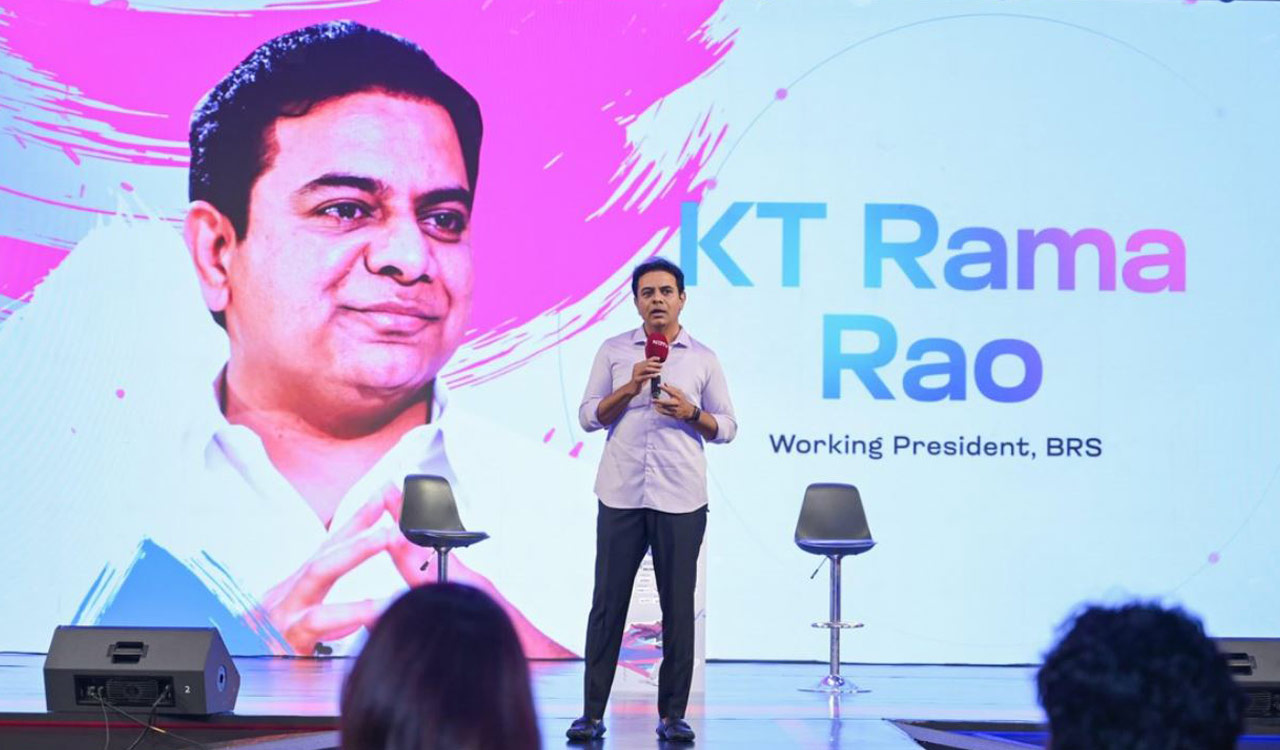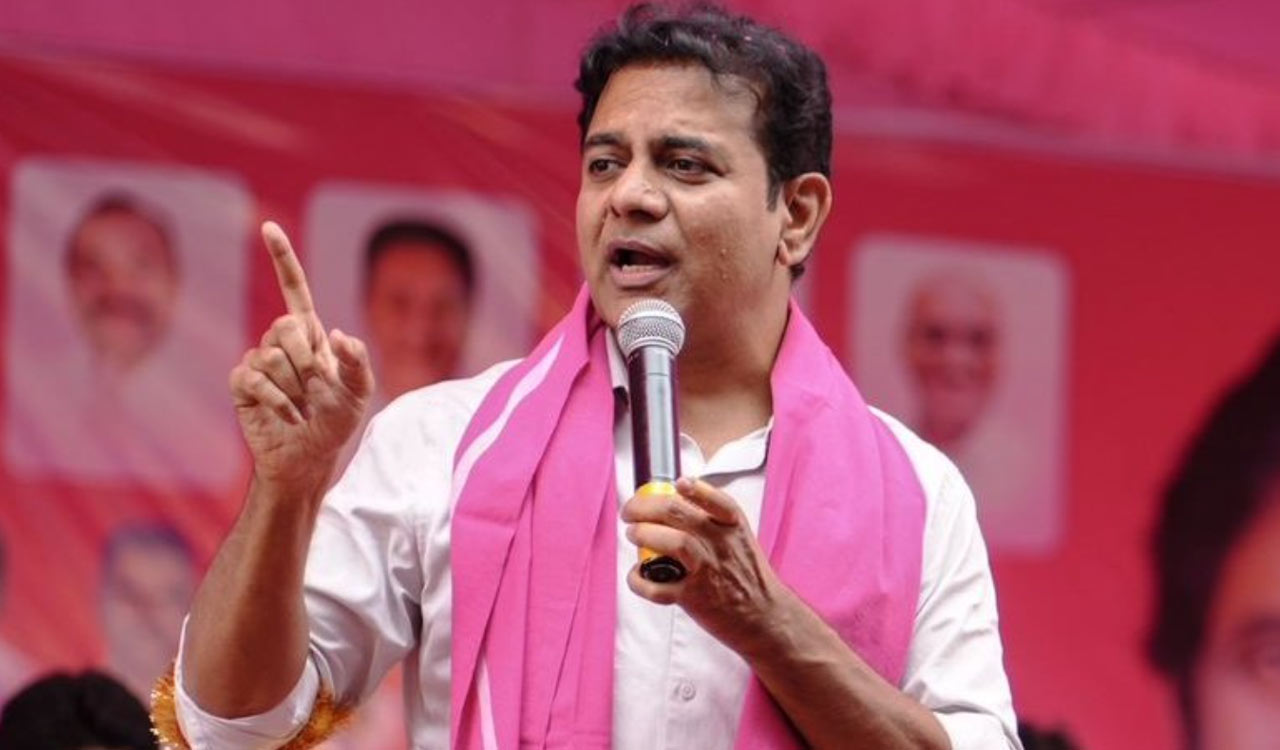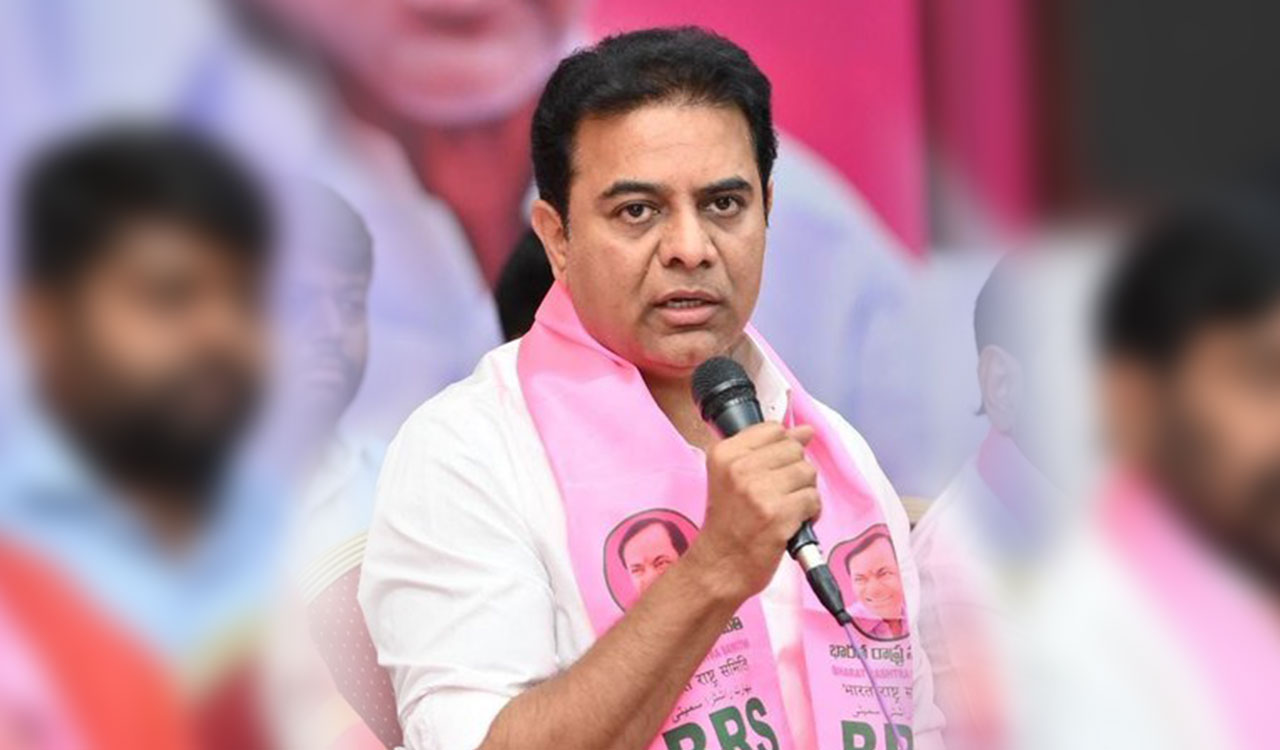KTR warns of ‘Nepal-like’ unrest risk for India, urges youth empowerment at NDTV Yuva 2025
KT Rama Rao warns India risks a Gen Z-led uprising if youth aspirations are ignored. Praising Telangana’s progress, he urged young people to engage in politics, challenge the status quo, and drive innovation, citing UoH students’ successful activism as an example

Hyderabad: BRS working president KT Rama Rao cautioned that India risks facing a Nepal-style youth uprising if governments continue to disregard the aspirations of the youth. Speaking at the NDTV Yuva 2025: Mumbai Chapter conclave, a platform dedicated to empowering young people, he emphasised that suppressing democracy and stifling Gen Z‘s voice could ignite unrest. While clarifying that he wasn’t advocating for violent protests like those seen in Nepal, he warned that growing disillusionment among the youth could lead to such outcomes.
“If governments keep failing them, why not?” Rao remarked on the possibility of a youth-led uprising in India, stressing the urgent need for responsive leadership to ensure equity and opportunity for all. Addressing the growing discontent with the Telangana government, Rao said the “Triple R Factor”—Recall, Regret, and Revolt—would be real for the State. He noted that people were fondly recalling the BRS’ decade-long governance, when all sections of society thrived. Now, they regret voting for the Congress in the 2023 elections, which the BRS lost by a narrow 1.8% margin, a mere four lakh votes. Rao predicted that this regret could soon escalate into a revolt, potentially bringing the BRS back to power.
Rao highlighted that the BRS, during its ten-year rule, excelled in governance. Today, Telangana, which he described as the ‘Gen Z state’, could boast of the world’s largest lift irrigation project—Kaleshwaram—besides Amazon’s largest campus and the world’s largest innovation centre- T-Hub, both located in Hyderabad. “If Telangana could achieve so much in a decade, why couldn’t the rest of India?” he asked. The only setback for the BRS was that it failed to effectively communicate its achievements.
In contrast, he criticised the Congress for making unrealistic promises, such as providing ten grams of gold for every marriage, which he claimed would be impossible to fulfil even with the combined budgets of all four southern States. “Today’s politics is about managing people, perceptions, and expectations,” Rao said, pointing to Prime Minister Narendra Modi as a master of perception management. However, he argued that Modi’s promises, particularly on job creation for the youth, have largely gone unfulfilled despite over a decade in power. He criticised Modi for distracting citizens by provoking primordial emotions—temple versus mosque, food habits, and clothing—while neglecting development and innovation that are crucial for the nation’s future. “Modi has succeeded in diverting public attention with perception and media management,” KTR alleged.
Rao urged Gen Z to play a pivotal role in shaping India’s future, encouraging them to “dream big, challenge the status quo, and actively build a progressive nation”. He called on young people to shed their aversion to politics and become architects of policy and society. Exhorting the youth to take an active role in politics, he questioned, “When politics determines your future, why can’t you determine politics?” He stressed that India should aim to compete with the West—China, Japan, and the US—rather than comparing itself with underdeveloped neighbours.
He reminded that in 1985, India’s and China’s economies were almost equal. India’s per capita income was $500 while China’s was $300. But today, after 40 years, India’s economy stands at $4 trillion with a per capita income of $2,700, while China has surged to $20 trillion with a per capita income of $13,000. “Instead of being satisfied comparing ourselves with Pakistan or Bangladesh, we must question why China has overtaken us,” he remarked.
He recalled how Japan, devastated by nuclear bombings in 1945, rebuilt itself within 23 years to become the world’s third-largest economy through innovation and industrialisation. “If Japan could rise, why not India?” KTR asked.
Citing a recent Gen Z success, Rao praised students at the University of Hyderabad (UoH) for their campaign against the State government’s plan to auction 400 acres of forest land that was part of the campus. The move was later struck down by the Supreme Court. Through street protests and a robust social media movement, the students successfully halted the proposal.
“The Telangana government was set to auction UoH’s land, but Gen Z fought back and protected it,” Rao said, lauding their activism. He further noted that while leaders like Sundar Pichai and Satya Nadella head American companies, India itself has not produced a single world-class innovation. “We don’t need just venture capital, we need adventure capital,” he said, inspiring India’s 380 million Gen Z youth to work with governments to transform the world.
Sounding a caution to the rulers against letting down the youth, he said, “Never underestimate the power of Gen Z – Governments must pay attention to their aspirations.”
Related News
-
Keralam: Kerala’s name change rooted in history and language
4 hours ago -
Shreyanka Patil says it was a difficult phase to miss competitive cricket
5 hours ago -
Senior Nationals 2026: Ajay Thakur calls it India’s biggest kabaddi stage
5 hours ago -
Sale of tickets for ICC Men’s T20 World Cup semifinals and final goes live
5 hours ago -
ICC Women’s T20 World Cup 2026 schedule confirmed
5 hours ago -
Kerala to be renamed Keralam: Union Cabinet
5 hours ago -
Sports briefs: Fine show by AMF para cyclists
5 hours ago -
Pundir century and Yawer 88 give Jammu & Kashmir edge over Karnataka in Ranji final
5 hours ago




